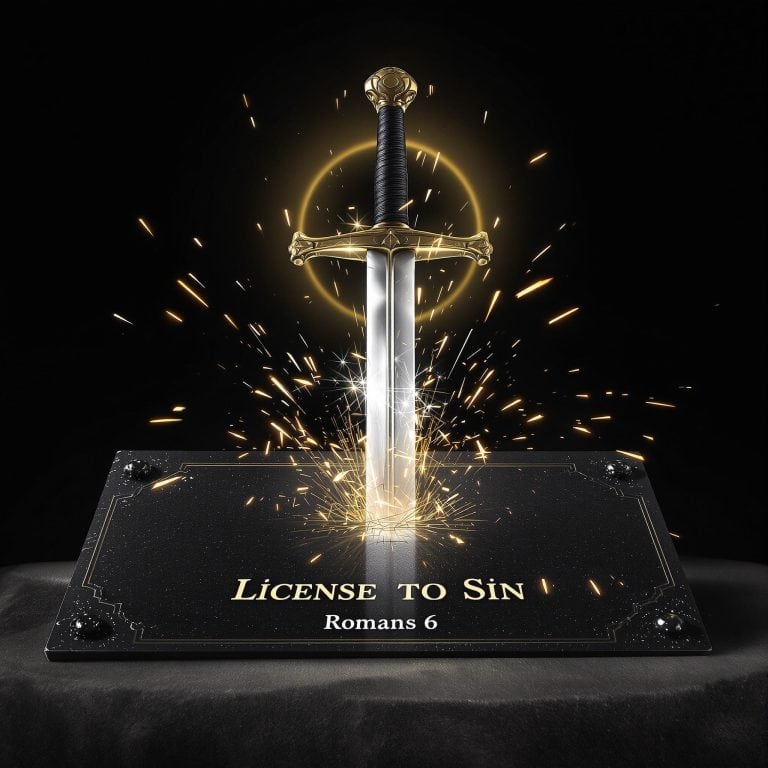How to Deal with Church Hurt
Church hurt is one of those wounds that lingers. It’s not just a sharp word on a bad day. It’s deeper. Maybe a trusted leader betrayed your confidence. Maybe a friend spread gossip that split your small group. Maybe it was worse — years of abuse covered by silence. Whatever the story, the result is the same: pain that cuts to the heart.

So what do you do with it? How do you deal with church hurt without letting it define your faith? The Bible doesn’t give us a neat, three-step formula, but it does give us a path. It shows us how to face the pain honestly, how to process it with God, and how to move forward without losing hope.
Learning how to deal with church hurt begins with honesty. You can’t heal what you won’t face, and the Bible never asks you to pretend wounds don’t exist. God invites you to bring the whole story — even the messy parts — straight to Him.
Step 1: Acknowledge the Hurt Honestly
The first step is the hardest: admitting you’ve been hurt. Not brushing it off. Not spiritualizing it away. Not saying, “I’m fine,” when you’re not.
Psalm 34:18 says, “The Lord is near to the brokenhearted and saves those who are crushed in spirit.” That verse doesn’t pretend brokenness doesn’t happen. It assumes it does — and promises God meets us there.
Denying church hurt doesn’t heal it. It only drives it deeper. Think of David pouring out his heart in the Psalms: “How long, O Lord? Will You forget me forever?” (Psalm 13:1). God didn’t rebuke David for speaking honestly. He preserved those words for us, showing that faith includes lament.
I’ve walked this myself. In the first church my family attended after coming to faith, I threw myself into service. I taught Sunday school, led the men’s group, sang in the choir, and was part of the praise team. When our music leader left, people began bringing up my name as a possible replacement. To me, it was simply another way to serve. To the pastor, it felt like competition. Instead of even considering me, he invented qualifications to make sure I couldn’t qualify. Eventually we left. Years later when we tried to return, the conditions he placed on us were impossible. He wanted control over every part of our lives — something only Jesus has the right to claim. The damage was severe. Every member of my family was hurt, and we still carry those scars more than twenty-five years later.
So start by naming it:
- I was hurt.
- This was wrong.
- It left a scar.
You can’t heal what you refuse to admit.
Step 2: Bring the Pain Before God
Once you’ve named it, bring it to the only One who can bear the weight.
The Psalms aren’t sanitized prayers. They’re raw. “Why are you in despair, O my soul? And why have you become disturbed within me? Hope in God, for I shall again praise Him” (Psalm 42:11). David didn’t hide his despair. He carried it to God.
That’s what learning how to deal with church hurt requires: prayer that doesn’t sugarcoat. God already knows the depth of your wound. He’s not honored by pretending it’s smaller than it is. He’s honored when you trust Him enough to lay it bare.
One of the hardest parts of learning how to deal with church hurt is realizing you can’t fix it by yourself. Carrying it to God in prayer is the only way bitterness begins to loosen and healing begins to take root.
Step 3: Seek Wise Counsel and Community
Pain isolates. It makes you want to withdraw and keep the hurt locked inside. But isolation is where bitterness hardens.

Proverbs 11:14 says, “Where there is no guidance the people fall, but in abundance of counselors there is victory.” Wise counsel isn’t about venting to anyone who will listen. It’s finding mature believers who will speak truth, guard your confidence, and walk with you patiently.
That may mean a trusted elder outside your church, a biblical counselor, or a Christian friend who’s grounded in Scripture. Healing rarely happens in a vacuum. God designed His people to walk together.
And here’s the tension: the very thing that hurt you — community — is also what God will use to restore you. It’s risky. But it’s necessary.
Step 4: Forgive as You’ve Been Forgiven
This may be the hardest step. Forgiveness doesn’t mean pretending the hurt never happened. It doesn’t mean saying abuse was acceptable or that betrayal was no big deal. Forgiveness means releasing the right to hold the offense over someone forever.
Paul writes in Colossians 3:13, “Bearing with one another, and forgiving each other, whoever has a complaint against anyone; just as the Lord forgave you, so also should you.” That last phrase stings: as the Lord forgave you.
Jesus reinforced it in Matthew 6:14–15 — if we withhold forgiveness, we show we don’t understand the forgiveness we’ve received.
If you want to know how to deal with church hurt, you can’t avoid forgiveness. It’s not optional. Without it, the wound stays open. Forgiveness doesn’t always lead to reconciliation, but it frees you from being chained to the hurt.
Step 5: Set Healthy Boundaries When Needed
Forgiveness doesn’t erase the need for boundaries. In Matthew 18:15–17, Jesus laid out a process:
- Confront sin
- Bring witnesses
- Involve the church
- and if they still refuse to listen, separate.
In other words — deal with sin honestly.
If a church refuses to repent of patterns of abuse or cover-up, sometimes the godliest response is to leave. Forgiving doesn’t mean you must stay in a toxic environment. It means you hand the debt over to God while making wise choices for your soul’s health.
Some wounds heal best when there’s distance. Boundaries don’t mean bitterness. They mean wisdom.
Step 6: Fix Your Eyes on Christ, Not People
This may be the turning point. If you keep your faith anchored in people, church hurt will destroy you. If you anchor your faith in Christ, the hurt — as deep as it is — won’t have the final word.
Hebrews 12:2 calls us to look “unto Jesus, the author and finisher of our faith.” People will fail. Leaders will disappoint. Friends will betray. But Christ never fails.
Psalm 118:8 says, “It is better to take refuge in the Lord than to trust in man.” That doesn’t mean mistrusting everyone. It means trusting people with limits, but trusting God without limit.
Part of learning how to deal with church hurt is shifting your focus. People may fail, but Christ never will. The church points us to Him — but it is not Him. Your anchor can’t be in the people who wounded you. It has to be in the Savior who will never leave you.
The Hope in Learning How to Deal with Church Hurt
So how do you deal with church hurt? You don’t ignore it. You don’t let it define you. You take it to Christ, step by step, and let Him heal what people have broken.
Psalm 147:3 says, “He heals the brokenhearted and binds up their wounds.” That’s not wishful thinking. That’s God’s promise.
Think about Peter. He denied Jesus three times — not just failing a friend, but betraying his Lord. That wound cut deep. Yet in John 21, Jesus restored him. If grace was big enough for Peter, it’s big enough for you.
The steps are never easy, but how to deal with church hurt is clear:
- Acknowledge it
- Bring it to God
- Forgive
- Set boundaries
- and fix your eyes on Christ.
Your scars may remain, but in Him they don’t stay open wounds. They become reminders of His mercy.
The church may fail you. Christ never will. Don’t let the pain drive you away from the gospel. Let it drive you to the One who never wounds unjustly, never manipulates, and never lies. He is the Good Shepherd. And He still knows how to bind up His sheep.
Walt Roderick is a Christian writer who cares more about biblical clarity than online applause. He writes to strengthen believers and confront spiritual drift.






